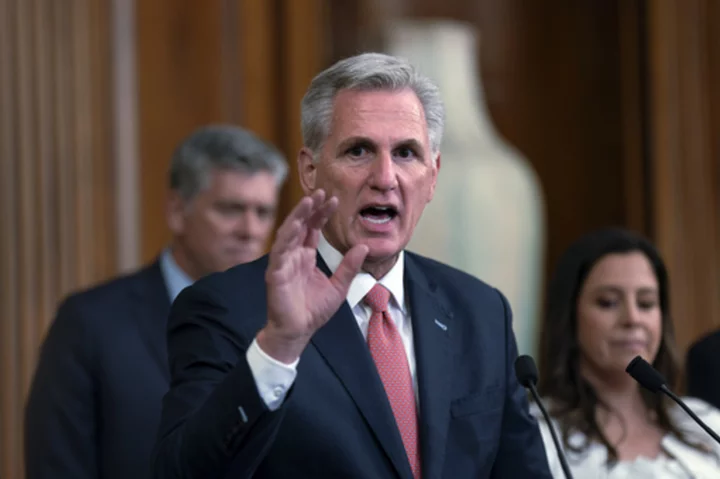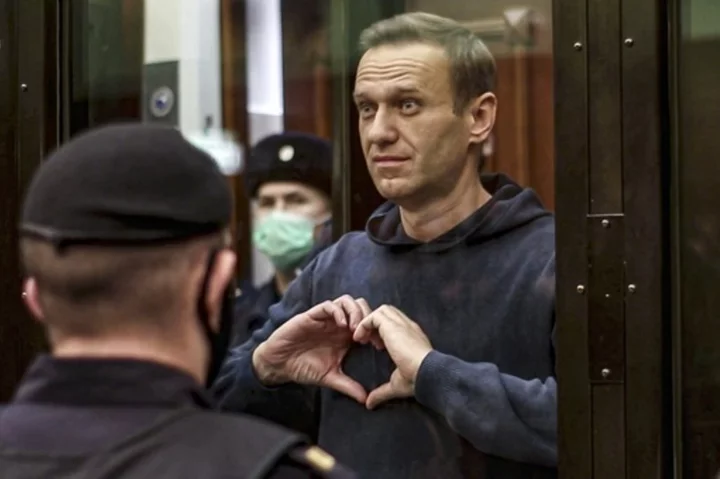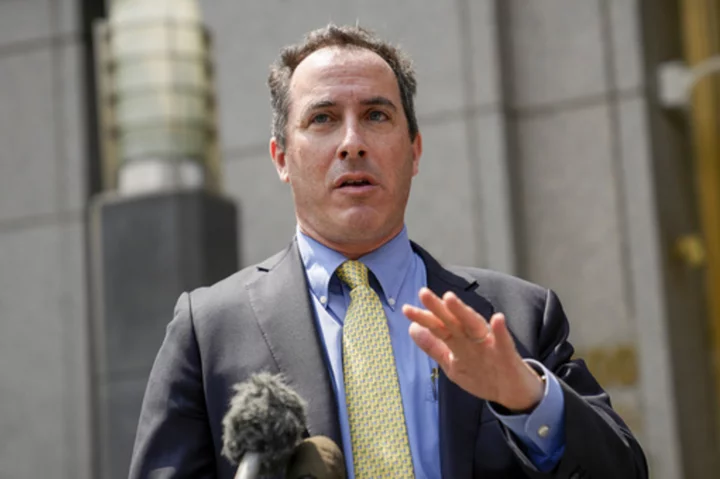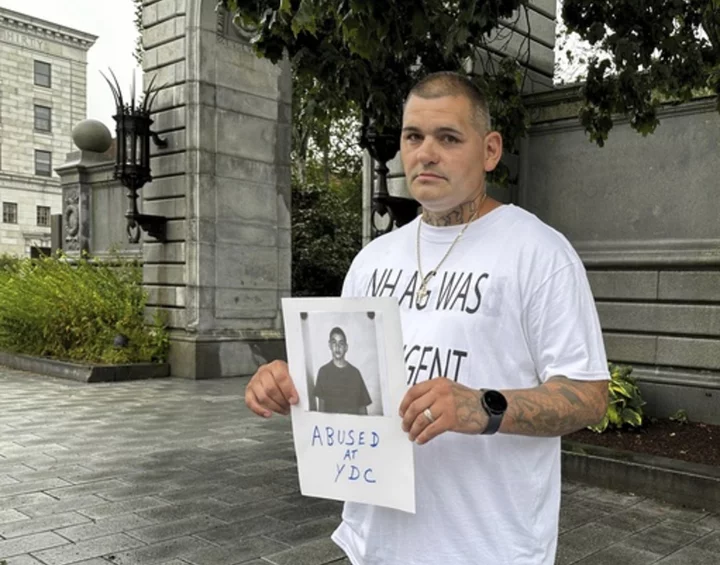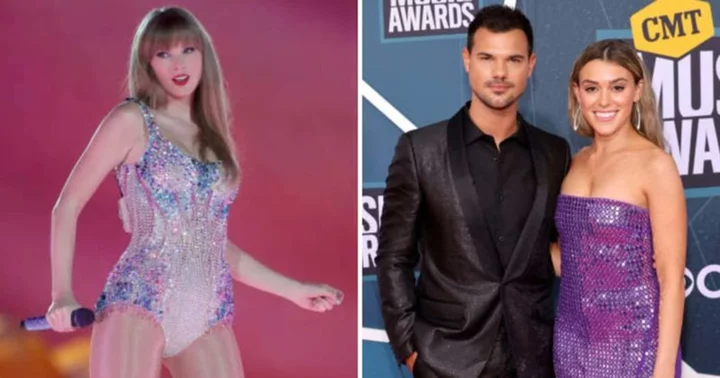WASHINGTON (AP) — When Senate Leader Mitch McConnell rose to announce his vote to acquit Donald Trump of impeachment charges in the Jan. 6, 2021, attack on the Capitol, the Republican assured the public the former president would have his day in court.
“He didn’t get away with anything yet — yet,” McConnell vowed.
“We have a criminal justice system in this country. We have civil litigation. And former presidents are not immune from being accountable by either one.”
But as Trump prepares to appear Thursday on federal charges that he orchestrated an unprecedented effort to overturn President Joe Biden’s 2020 election win, the Republican Party’s 2024 frontrunner for the White House faces no such dire warnings or recriminations from fellow Republicans.
It’s a piercing silence that commands attention as Trump towers over the field of Republican contenders for the presidency. Gone are those who once stood up to Trump. Instead, the party Trump leads has essentially given up on criticizing his actions, countering his impulses or putting a check on his accumulating power.
Scholars of authoritarian history warn it is a classic example of an eroding democracy.
“He’ll do it again,” said a new ad from the Republican Accountability Project, an advocacy group. “Unless he faces consequences.”
The Justice Department indictment of Trump outlines with new detail the extent to which the defeated president resorted to a far-flung scheme to overturn Biden’s election, culminating with the deadly Jan. 6 riot at the Capitol, a domestic attack unlike any other in U.S. history.
Most members of Congress have personal experiences with the events of Jan. 6 — some barricading the doors to the House chamber or fleeing for their safety as the mob of thousands of Trump supporters laid siege.
At the time, Republican leader Kevin McCarthy called it his “saddest day” in Congress, and he said Trump “bears responsibility” for what happened.
After the 45-page indictment was delivered late Tuesday, McCarthy, now the House speaker, had a different reaction. He called it “DOJ’s attempt to distract from the news and attack the frontrunner for the Republican nomination, President Trump.”
The shift among Republicans in Congress was quick for some, unequivocal for others and now, as Trump seeks a return to the White House, all but complete.
Republicans who once challenged Trump, like former Rep. Liz Cheney, have been booted from office by voters, or forced into earlier retirement. Those who remain, including Sen. Mitt Romney, are routinely bullied and badgered by Trump, in humiliating public displays.
Of those 10 House Republicans who voted to impeach Trump over the insurrection at the Capitol, few remain, along with a handful of senators who voted to convict.
Instead, the Republicans in Congress are turning their attention to investigating Biden and his son, Hunter, over the family finances. They are also working to gut the Justice Department and revise the narrative of what happened on Jan. 6, 2021, as they seek to expunge Trump’s impeachment record.
A top Trump ally, Rep. Marjorie Taylor Greene, who is also close to McCarthy, said she would work to defund special counsel Jack Smith's office during the fall budget battles. She also wants to impeach Attorney General Merrick Garland.
Republicans portray the charges against Trump as a “weaponization” of the federal government against their party leader — an extension of the Justice Department's probe of Russian interference in the 2016 election and Trump’s first House impeachment over pressuring Ukraine to dig up dirt on Biden — rather than the result of the department's yearlong investigation into the former president’s role in Jan. 6.
Greene said she won’t stand by as the the government “politically persecutes” Trump.
McCarthy is considering an impeachment inquiry into Biden as Republicans work to counterprogram the mounting legal challenges against Trump with the emerging House probe of Biden family finances. Some Republicans are revising the narrative over Jan. 6, suggesting those involved were simply “tourists.”
Five people died during the Jan. 6 attack and its aftermath, including Trump supporter Ashli Babbitt, who was shot and killed by police as she tried to enter a room off the House chamber. More than 1,000 people have been charged by the Justice Department, some facing serious sentences, including extremist group members convicted of sedition.
In the indictment, prosecutors showed how Trump’s effort started in the weeks after the November 2020 election. They said he enlisted officials from seven states he lost to submit false election certificates to Congress saying he had, in fact, won their states.
Trump summoned thousands of supporters to Washington on Jan. 6, certain, he said, they would be “angry,” according to the indictment. His attempt to stop Biden’s victory continued even in the hours after his supporters ransacked the Capitol.
Special counsel Smith wrote that Trump “targeted a bedrock function of the United States federal government: the nation’s process of collecting, counting, and certifying the results of the presidential election."
It is “foundational to the United States’ democratic process, and until 2021, had operated in a peaceful and orderly manner for more than 130 years.”
It’s the third indictment of the former president, all historic, as no other former president has faced criminal charges. Trump was earlier charged by Smith with hoarding classified documents and refusing to return them. And he faces New York charges over hush money payments made to a porn actor during the 2016 campaign.
At a rally last weekend, Trump argued he was exercising his right to free speech as he challenged the 2020 election results, an argument Republicans in Congress echo as they complain they are being silenced and censored.
In the indictment, the prosecution said Trump had a right to challenge the results. But it said Trump repeated his knowingly false claims to give them legitimacy and "create an intense national atmosphere of mistrust and anger, and erode public faith in the administration of the election.”
At the time, McConnell put it similarly.
“The issue is not only the President’s intemperate language on January 6,” McConnell said ahead of the Senate vote to acquit Trump of the impeachment charge of insurrection.
“It was also the entire manufactured atmosphere of looming catastrophe; the increasingly wild myths — myths— about a reverse landslide election that was somehow being stolen in some secret coup."
McConnell said, “The leader of the free world cannot spend weeks thundering that shadowy forces are stealing our country and then feign surprise when people believe him and do reckless things.”
This week, McConnell was silent.

